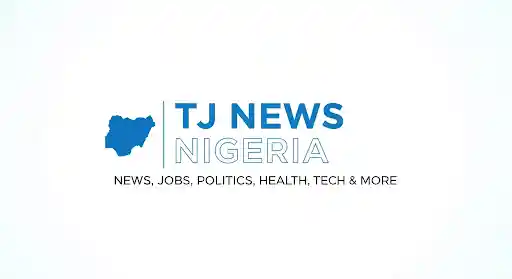The week of September 15–21, 2025, was marked by intense developments across Nigeria’s political, economic, security, cultural, and social landscapes. From violent attacks in the northeast to landmark achievements in entertainment, Nigerians at home and abroad closely followed stories that reflected the country’s challenges and triumphs.
TJ News Nigeria reports that security crises, economic reforms, recruitment initiatives, and cultural milestones dominated headlines, while social media amplified debates around governance, resilience, and national pride. Below is a detailed look at the top 10 stories in Nigeria this week, based on media reports, official statements, and public conversations.
1. Escalating Violence Against Christians and Security Operations
Nigeria’s worsening insecurity took center stage this week. Security analysts and advocacy groups continue to raise alarm about ongoing violence affecting vulnerable communities in northern Nigeria. The killing of Fr. Matthew Eya on September 19 in Enugu State sparked renewed calls for increased protection of religious leaders and civilians in rural areas
In a parallel development, the Nigerian Air Force (NAF) launched targeted airstrikes on September 18 in Borno and Yobe States, neutralizing more than 25 terrorists linked to Boko Haram and ISWAP. Despite these operations, a fresh jihadist attack near Maiduguri displaced over 5,000 civilians to Cameroon, deepening international concern about what some human rights groups have labeled a worsening humanitarian crisis.
This development reinforces Nigeria’s long-running battle with insurgency, underscoring both government military responses and the growing humanitarian toll.
2. Economic Reforms Show Positive Trends
Nigeria’s economic narrative shifted positively with data showing inflation dropping to 20.12% in August 2025, the lowest in three decades. This milestone followed the removal of fuel subsidies and other structural reforms aimed at stabilizing the economy.
The Nigerian Stock Exchange recorded a significant N704 billion gain, while the country’s external reserves hit $41.66 billion, boosting investor confidence.
In the corporate sector, Zenith Bank announced a record-breaking ₦532.2 billion half-year profit, cementing its dominance in Nigeria’s banking industry. At the policy level, Vice President Kashim Shettima pointed to these reforms as drivers of renewed investment, particularly in the energy and manufacturing sectors.
The developments triggered debates among analysts, with some praising government policy direction while others questioned long-term sustainability.
3. President Tinubu’s Return and Policy Push
After a brief private vacation, President Bola Ahmed Tinubu returned to Nigeria on September 16 and quickly rolled out major policy announcements.
He revealed that his administration would launch a school feeding program targeting 50 million pupils by 2026, a move aimed at addressing malnutrition and boosting education access. In addition, Tinubu announced free farm inputs for farmers, aligning with his broader food security strategy.
In governance, Tinubu lifted the Rivers State emergency and directed his deputy, Vice President Shettima, to lead Nigeria’s delegation to the 79th United Nations General Assembly (UNGA), which opened on September 22.
On the personal front, First Lady Oluremi Tinubu celebrated her 65th birthday on September 21, drawing messages of goodwill from politicians and citizens alike.
4. Recruitment Drives Boost Employment
Employment opportunities featured prominently in the week’s developments. The Nigeria Customs Service (NCS) began issuing pre-test invitations for its recruitment exercise, raising hopes for thousands of job seekers.
Meanwhile, Air Peace announced 1,000 graduate trainee positions, reinforcing its image as Nigeria’s leading private airline. The development coincided with the federal government’s decision to suspend a 4% import levy, a policy change expected to stimulate trade and reduce operational costs.
Across the South-South, new agribusiness funding programs were unveiled to empower youths, signaling a coordinated push to tackle unemployment through agriculture, aviation, and public service opportunities.
5. Cultural Milestone: Hilda Baci’s World Record
On September 15, Nigeria’s culinary scene achieved global recognition when Hilda Baci set a Guinness World Record for the largest serving of jollof rice, weighing 8,780 kilograms.
The Lagos event drew massive crowds and online engagement, celebrating jollof rice as a symbol of West African identity. The record-breaking achievement not only placed Nigeria in the global spotlight but also underscored the role of cultural exports in fostering national unity and international recognition.
The feat sparked widespread pride, with social media buzzing under hashtags like #HildaBaci and #NigeriaJollof.
6. Kano Inventor’s Anti-Drowsiness Glasses
A young inventor from Kano State went viral this week after unveiling anti-drowsiness eyeglasses designed for drivers. The innovation uses motion sensors and vibration alerts to prevent drivers from dozing off, potentially reducing road accidents.
The invention gained traction on social media and was praised as an example of Nigerian ingenuity in technology and safety innovation. Policymakers and road safety officials have since called for wider support for local inventors to commercialize similar projects.
7. 1996 Olympic Gold Nostalgia
Nigerians celebrated a cultural flashback this week, as social media commemorated the country’s 1996 Olympic football gold medal.
Posts honoring Kanu Nwankwo, Jay-Jay Okocha, Daniel Amokachi, and other members of the “Dream Team” trended nationwide, with fans reliving the Atlanta victory over Argentina.
The nostalgia underscored the lasting influence of sporting triumphs in shaping national identity, especially at a time when Nigerians seek moments of collective pride amidst challenges.
8. Flooding and Environmental Concerns
Severe flooding in Borno and other northern states dominated environmental discussions this week. In Maiduguri, heavy rains displaced thousands, destroyed homes, and disrupted access to essential services.
Civil society groups and humanitarian organizations renewed calls for climate resilience policies, improved urban planning, and better disaster preparedness.
Environmental experts noted that flooding, combined with insecurity, is worsening the plight of internally displaced persons (IDPs). This double burden has become one of Nigeria’s most pressing humanitarian crises.
9. Naira Defense and CBN Policies
The Central Bank of Nigeria (CBN) intervened this week to defend the naira after it fell to ₦1,700 per U.S. dollar in the parallel market.
While CBN’s interventions boosted foreign reserves, analysts remained divided on whether the policies are sustainable. Critics argued that currency volatility continues to fuel inflation and erode household purchasing power.
Public debate intensified over whether reforms should prioritize market stability or short-term cost-of-living relief. The naira’s performance remains a central issue for households, businesses, and policymakers alike.
10. Davido’s Political Commentary Sparks Debate
Afrobeats superstar Davido stirred conversations after making remarks about Nigeria’s political and economic challenges during a public appearance.
His commentary on leadership accountability and governance quickly spread across platforms like X (formerly Twitter) and Instagram, where fans and critics debated the role of celebrities in shaping political discourse.
The development highlighted the growing intersection of music, youth activism, and politics, underscoring the influence of cultural figures in Nigeria’s democratic journey.
Also Read : Fejiro Oliver Arrested, Flown to Asaba – Details Emerging
Final Notes
The top 10 stories in Nigeria this week (September 15–21, 2025) reflected the country’s struggles with security, its modest economic recovery, and its vibrant cultural identity. From Borno’s flood crisis to Hilda Baci’s culinary world record, Nigerians engaged with events that shaped both policy debates and collective morale.






